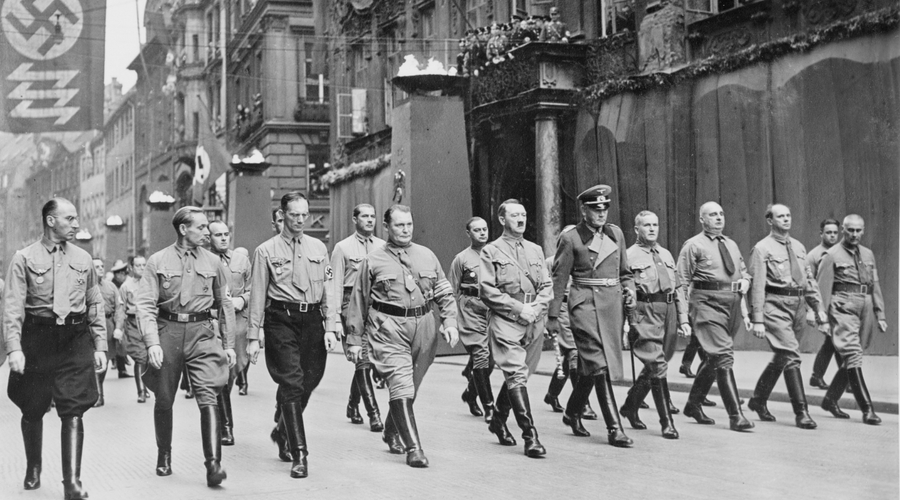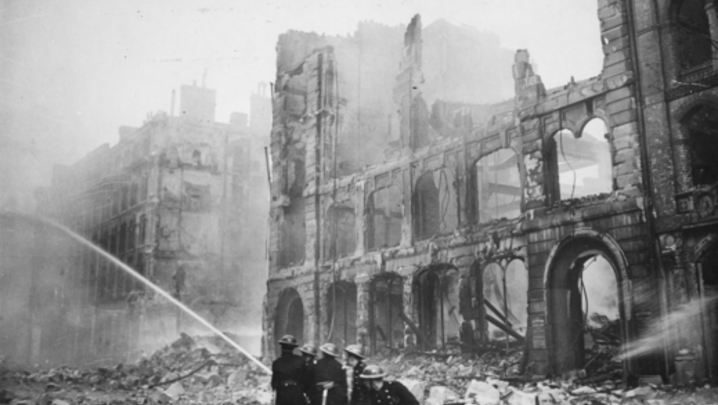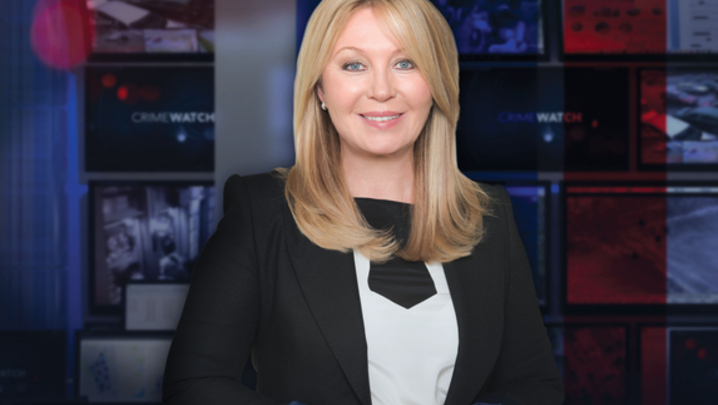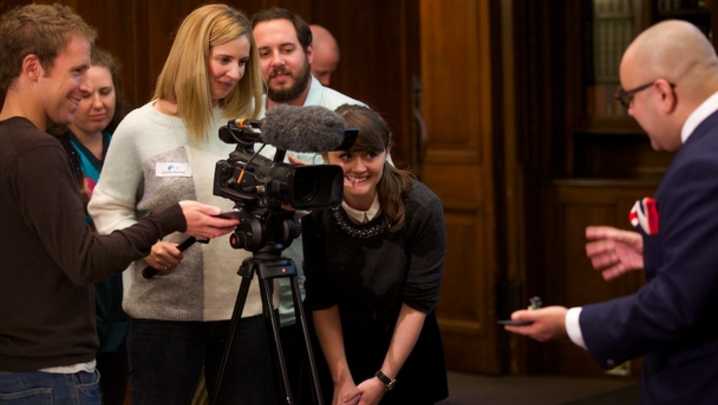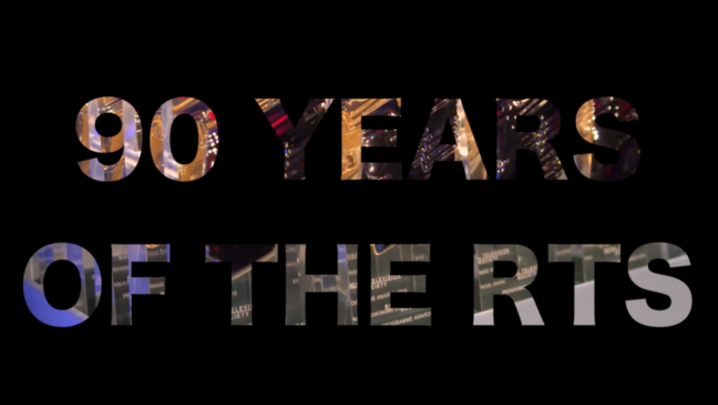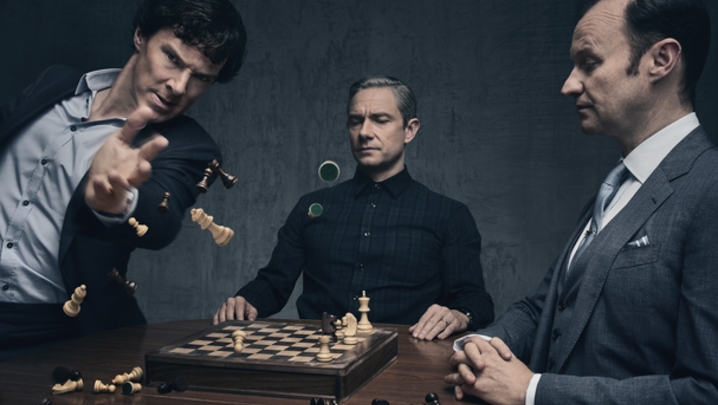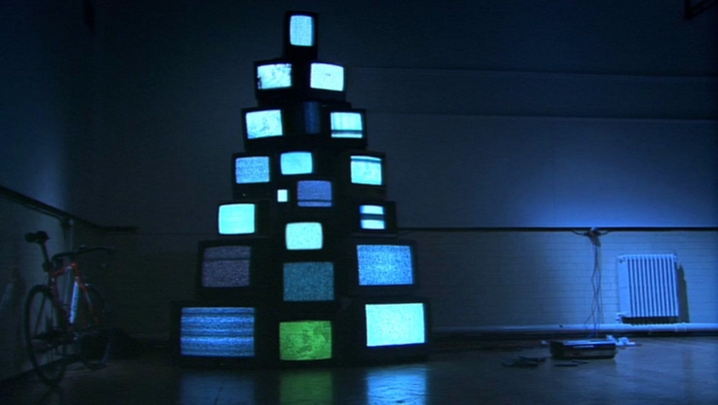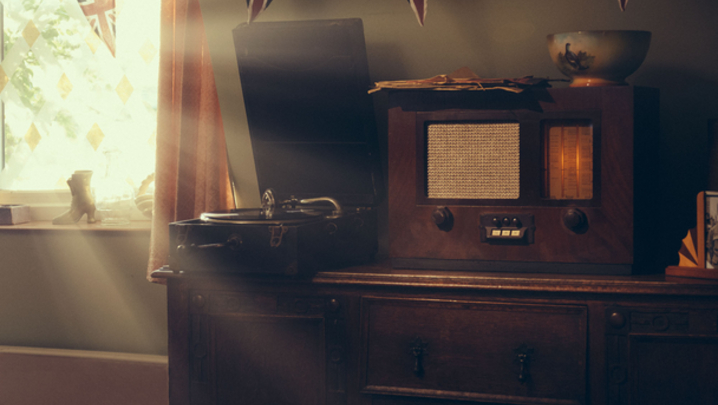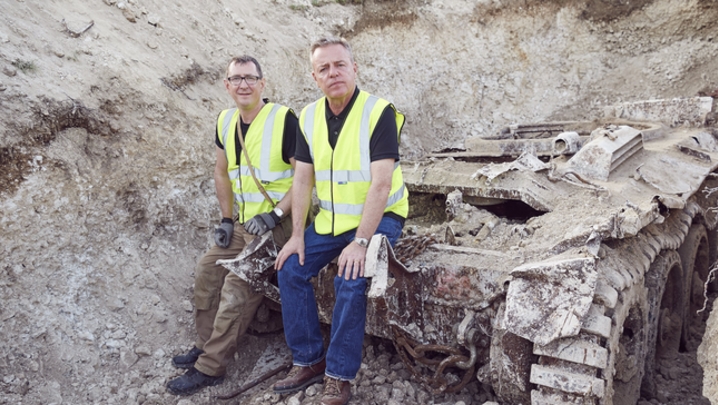Turn on the TV on any given day and it's likely you'll stumble across something to do with the Second World War.
Whether it's new ITV drama Home Fires, reruns of Dad's Army, or a documentary about Hitler, decades after the war ended, it still dominates television schedules.
This week sees an increased output of programmes centred on the 1939-1945 conflict, as Britain commemorates the 70th anniversary of VE Day.
What is it about this conflict in particular that chimes with viewers and commissioners in a way that other wars, even the First World War, do not?
"People are fascinated by the Second World War," says historian Dan Snow.
"I think that is extraordinary and in many ways slightly strange, but I do find it understandable. The Second World War was the biggest political, military, human tragedy the world has ever witnessed.
"It was a war that had more of an impact on our landscapes and our cities than any other war in history; we're still living with the consequences of that war."
For Catherine Oldfield, former script editor on Foyle's War and executive producer of Home Fires, which centres on the efforts of the Women's Institute during the war, its magnitude means that the period is ripe for storytelling: "There were 48.5 million people living in Britain during the Second World War and nobody's experience of the war was the same as anyone else's.
"That immediately gives you a gateway into fascinating stories and they keep coming to light."
Access to war
With the war still a major part of the National Curriculum, programmes focused on that time do not necessarily have to put the same work into contextualising the conflict as they would for other subjects.
"People understand the origins of World War Two because they studied it at school," says Adrian Wills, General Manager of Yesterday, UKTV's factual channel, "then when they come to it on TV, it's another way of digesting it."
Wills believes that the volume of moving footage from the war means that it is immediately more accessible to viewers.
"It's remarkable that we have film of Hitler making his speeches," says Wills, who suggests that the Napoleonic Wars would be more popular if there was similar footage of Napoleon.
"It's a direct, visceral thing. If you're relying on intermediaries like historical documents or the interpretation of a historian, it just puts that part of history slightly more at arm's length."
It's not just archive material that makes the Second World War resonate with modern audiences. The fact that it happened within living memory for Britain's older generation means that the nation has grown up hearing stories from family members.
"It's a bit more accessible than the Battle of Waterloo for most people because everyone you know had a granddad who did something," says Dan Snow.
Good vs. Evil
The black and white nature of war means that it has been relatively easy for viewers to understand.
"It's one of those wars where good and bad was very clearly delineated, and the Brits won," says Adrian Wills. "It wasn't like the compromise at the end of World War One."
Dan Snow agrees, "I think there are lots of elements of the Second World War that are almost designed for film and designed for popular history, for popular engagement."
He points out that it's not just television that is seemingly fixated on the conflict, but magazines, books and films as well.
"I talk to friends who run popular history magazines and they all tell me that there is an absolutely decisive difference when you put Hitler on the front cover."
In the past, Yesterday was slammed for its apparent obsession with documentaries about the Nazis, a claim Wills accepts.
"We've made a conscious effort to limit [war] to zones in the schedule; we call it 'Warzone'... It makes up no more than about 20% of the entire schedule, and of that 20%, I'd say the majority, about 80-90% of it, is World War Two."
Though Wills and his team are increasingly trying to branch out into other periods of history, he admits that more recent conflicts in Afghanistan and Iraq, while popular with younger viewers, do not pull in the same kind of viewing figures as shows with 'Hitler' or 'Nazi' in the title.
"We're a commercial broadcaster, we need to have audiences," concedes Wills. "We can get viewer fatigue with too much of the same thing, so we try and offer a varied diet."
The next 70 years
With so many facets to explore, interest in the Second World War seems unlikely to diminish as it moves from living history to recent memory.
For Catherine Oldfield, the war will continue to be a great source for drama.
"[On Foyle's War] we used to really enjoy digging out those secret stories of the war and then we'd use those as a backdrop in which the crime would play out."
"I'm sure that more producers will come up with more ideas, and more angles on World War Two," predicts Wills, "and people don't seem to tire of it."
Dan Snow envisages a shift in focus towards China's contribution to the war as the country grows as a market and geopolitical player.
China suffered the second-worst losses of the war after the Soviet Union, with over 14 million people killed, yet as Snow highlights, "even I've only vaguely heard the names of these battles."
"My guess is that the Second World War will continue to exert this fascination for people, because of its scale, because of its unimaginable horror, because of its magnitude, intensity and impact."

